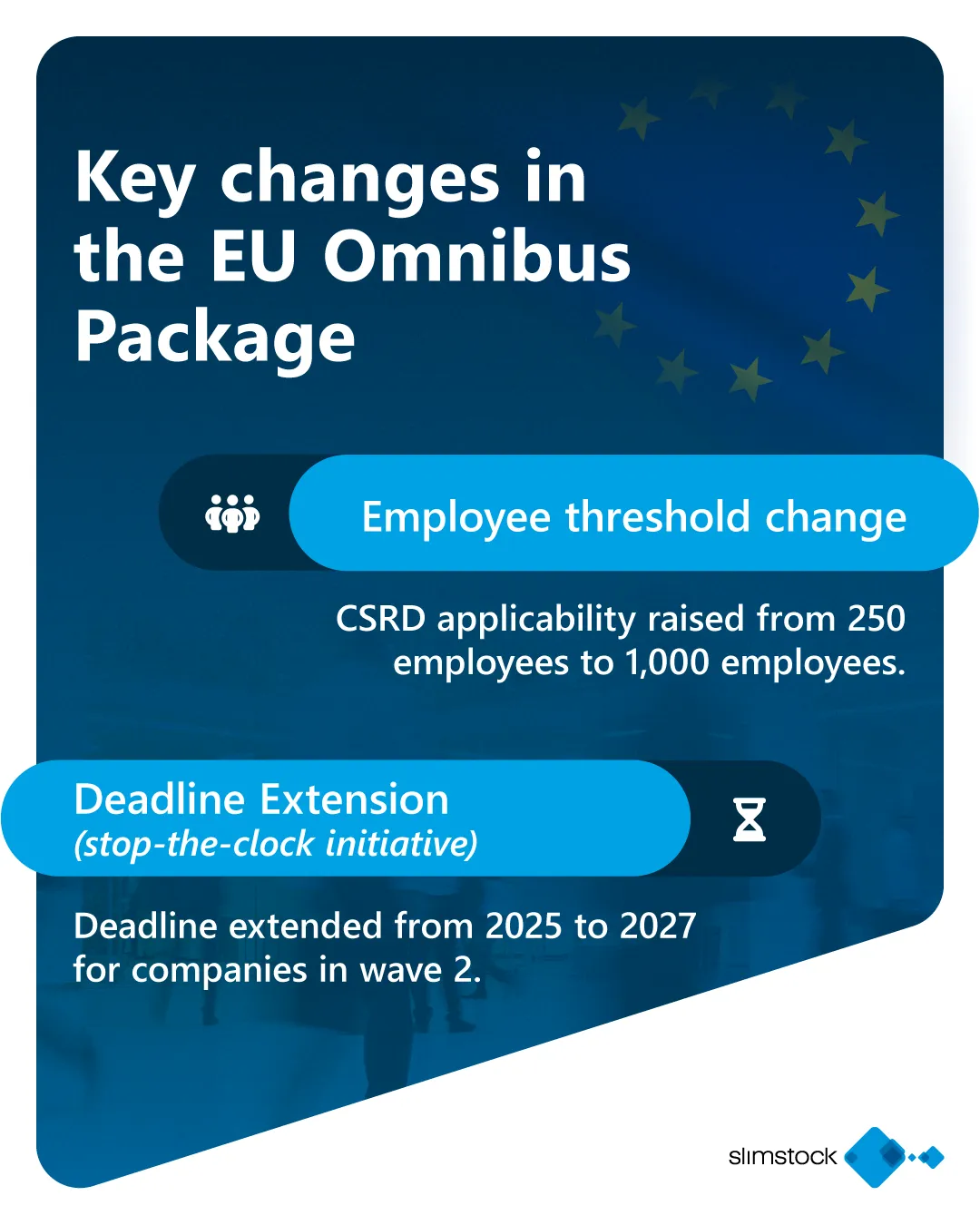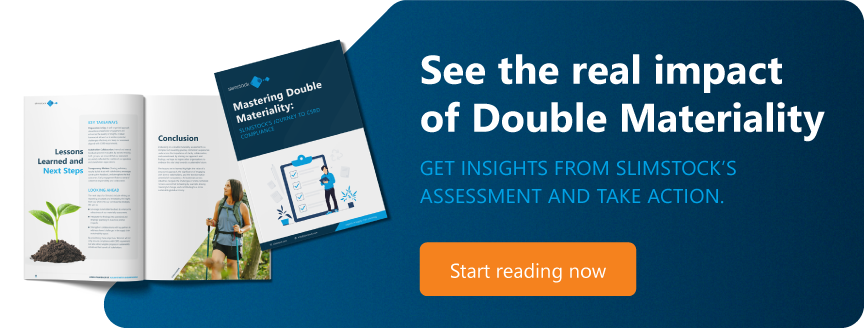Overview
The EU Omnibus Package, a proposal to simplify EU regulations, includes key changes for corporate sustainability reporting (CSRD), specifically raising the employee threshold for mandatory reporting from 250 to 1,000, and introducing a ‘stop-the-clock’ initiative extending CSRD deadlines. Slimstock, a mid-sized company, decided to continue voluntary reporting using the VSME framework despite potentially being exempt, prioritizing practical sustainability efforts over compliance-driven admin work.
On 26th February 2025 the European Commission introduced the EU Omnibus package, a proposal designed to simplify regulatory requirements for businesses in the EU. One of the biggest changes focuses on corporate sustainability reporting, especially for companies that were previously obligated to follow the Corporate Sustainability Reporting Directive (CSRD).
In this article, we’ll walk through the key updates from the Omnibus package and how Slimstock is responding to them.
Key changes in the EU Omnibus Package
Higher employee threshold for CSRD applicability
One of the biggest shifts is the change in the employee threshold for CSRD reporting. Up until now, companies with over 250 employees had to comply with CSRD rules. But under the Omnibus update, that number has shot up to 1,000 employees.
For mid-sized businesses, this is a pretty significant change. Many companies that had been gearing up for CSRD compliance might now find they’re no longer legally required to do it. That said, just because the law no longer demands it doesn’t mean stakeholders, like investors, suppliers or even customers, won’t still expect sustainability reporting. In fact, opting out entirely might not be the smartest move in terms of reputation and trust.
“Stop-the-clock” initiative on CSRD deadlines
To tackle the difficulties that businesses are facing with CSRD reporting, the European Commission has put forward a temporary ‘stop-the-clock’ initiative for the reporting deadlines.
Companies in wave 2, which were originally meant to submit their first report for fiscal year 2025, will now have until fiscal year 2027 to do so.
In other words, businesses will get more time to get ready for the transition and meet the CSRD requirements.
Slimstock’s take
Even with the regulatory changes still unfolding, Slimstock is facing a tricky strategic decision regarding sustainability reporting. With around 500 employees, we’d likely no longer be required to report under CSRD if the Omnibus package goes through. But for now, the package is just a proposal and things could change.
However, today (April 3rd, 2025) the EU parliament did adopt the stop-the-clock proposal, meaning that even if we have to report, the deadline is extended by two years.
But sustainability reporting isn’t just about ticking boxes for us. Yes, we believe in transparency, but we also believe in being practical. Less admin work? We won’t complain, it means we can focus more on actually improving sustainability rather than just filling out reports.
For now, we have decided to continue our reporting efforts over 2025, but we’ll switch to the VSME framework in doing so. The VSME framework is an alternative sustainability framework by the EU geared towards small and medium enterprises. While Slimstock is netiher of those, there is currently no EU framework for mid-size enterprises in the gap that has opened between VSME and CSRD.
If the EU eventually rolls out a dedicated mid-cap sustainability reporting framework, we’ll be ready to adapt. At the end of the day, our goal is simple: to focus on sustainability efforts that really matter, rather than just ticking boxes for the sake of compliance.
Conclusions
The EU Omnibus update is changing the game for sustainability reporting, particularly for mid-sized companies. While many businesses might now be off the hook legally, those that take sustainability seriously will likely continue reporting voluntarily because it’s about more than just following rules.
At Slimstock we’re committed to data-driven sustainability. The Omnibus update gives us a bit more flexibility to refine our reporting approach, and we’ll be keeping an eye on legislative developments to make sure we stay ahead: compliant, transparent and making a difference.






